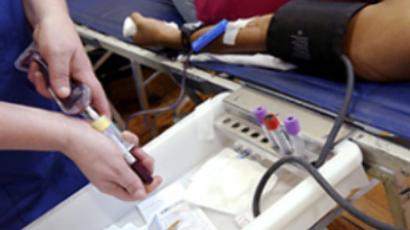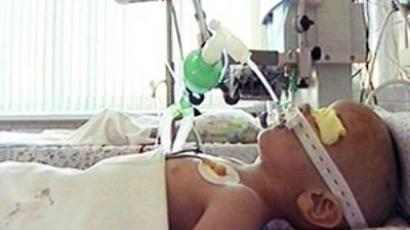The precious blood of Russia’s donors
The lives of millions of people depend on those willing to donate their blood, but many countries have a dire shortage and Russia is no exception, with the number of donors having shrunk by a half over the last decade.
Eleven-year-old Sergey has anemia, and needs transfusions of blood platelets twice a week. His mother Anastasia Zhilina shared her fears that “If blood does not arrive on time, my son could die from hemorrhaging, because a shortage of blood platelets makes any bleeding very dangerous. Platelets are essential to allow the blood to clot.”
In Russia, however, blood can be hard to come by. A report by the Federal Health service in 2007 found that the country had only half the European average number of donors.
A chronic shortage of voluntary doctors in Russia also means long waiting times compared to Europe and 500-1000 times the risk of someone receiving blood catching an infectious disease, and the country's remedial efforts are progressing slowly.
Doctor Vladimir Potapsky explained the situation: “At the moment, Russian medical institutions need 40 or 50 donors for every thousand patients for normal operations. The current figures in Russia are only 16 to 18 donors per 1,000.”
The Russian government pays each donor the equivalent of around thirty dollars if they want it. People come to give blood for many reasons.
”First of all, I feel it my duty to help my homeland. Second, I just want to earn some money,” explained student donor Nikolay.
Others have deep personal reasons and refuse any payment.
“You know, my wife has been taken to hospital and has already undergone two operations. So I decided to help,” shared another donor Sergey Terekhov.
For those waiting for it, blood reserves are a lifeline. The work of doctors, government initiatives to raise awareness and charities is starting to help, and hopes are high for the future.
“People are eager to help and they are in general kind and generous, but they also need to be helped to make the first step,” said Elena Muralyova from charity “Gift of Life”. “I think, in seven years we have already done a lot, and hopefully in another seven years everything should be just fine.”
Russia's blood shortage is a problem faced by many countries. Efforts are being made to collect it wherever it can be found. Yet as long as it is needed, the doctors and nurses here hope that donors will continue to come forward.














